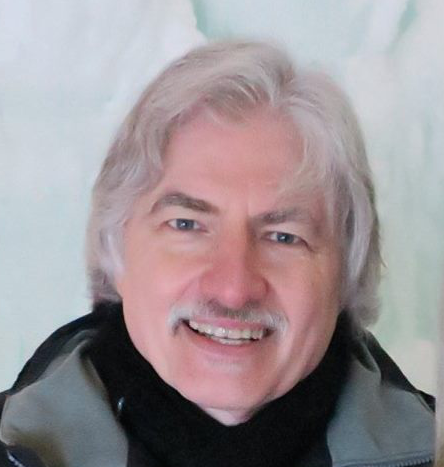First Reformed
Paul Schrader’s new film asks if God will forgive us

When I was growing up, many of the films I watched made some reference to faith or the church because both played a central, or at least regular, role in the lives of most Americans. But for decades now, films about faith, the church, or both have been few and far between, and when faith is portrayed, it is often viewed negatively, or at best is portrayed as naive. So when a critically acclaimed film comes along that not only takes faith seriously but portrays both its positive and negative aspects, I take special notice.
It’s not surprising that such a film would come from Paul Schrader, who wrote the screenplay for some of Martin Scorsese’s most acclaimed films (Taxi Driver, Raging Bull, and The Last Temptation of Christ). Schrader grew up in a very strict Calvinist home and wasn’t allowed to watch films until he turned 18. Since then, he has written and directed many films, some of them very good (for example, Affliction) and some of them very bad (for example, his last film, Dying of the Light). But good or bad, Schrader’s films are usually thoughtful and often have things to say about faith. They also frequently feature tormented male protagonists, as is the case in First Reformed, which Schrader both wrote and directed.
First Reformed opens with a shot of a 250-year-old church in upstate New York. This is the First Reformed Church, home for only a handful of attendees but a regular stop for tourists. Pastoring this church (and often acting as its tour guide) is the tormented protagonist, 46-year-old Reverend Ernst Toller (played by Ethan Hawke).
Toller’s constant wrestling with God forms the backdrop to First Reformed, making it one of the most profound theological dramas I have seen in a very long time.
Formerly a military chaplain, Toller had encouraged his son to join the army. Six months after doing so, his son was killed in Afghanistan. Toller’s wife left him, and he retreated to a small town and a small church, living in an almost empty house where each evening he writes in a journal and drinks whiskey to keep the emptiness and loneliness at bay. Toller feels that God has abandoned him, though he doesn’t share this with Reverend Joel Jeffers (Cedric Kyles), pastor of the Abundant Life Church, the community’s 5,000-seat megachurch.
Abundant Life owns First Reformed, so Toller reports to Jeffers and must accede to Jeffers’s demands about the upcoming 250-year reconsecration of First Reformed. The two churches could not be more different, making for an unusual partnership. Film critics seem to agree that Jeffers and Abundant Life are portrayed very negatively as the flashy, superficial and prosperity-focused side of Christianity, but I found the Jeffers character to be quite nuanced, and the larger church is shown to possess a number of positive qualities.
One day, Mary (Amanda Seyfried), one of Toller’s few faithful attendees, asks him to speak to her husband, Michael (Philip Ettinger). Michael, a passionate environmentalist, is feeling overwhelmed by the prospect of bringing up a child in a world doomed by climate change, and he wants Mary to have an abortion. Toller tells Michael that despair exists so God’s hope can shine more brightly. He adds, “Holding these two ideas in our heads is life itself, hope and despair.”
Michael doesn’t seem convinced, perhaps because he senses that Toller himself is full of despair. Indeed, the counseling seems to backfire, because Toller is haunted by Michael’s parting question, “Will God forgive us?” and becomes obsessed with climate change himself, and with the role that one of the country’s leading polluters plays in the Abundant Life Church. When his doctor suggests to Toller that he may have stomach cancer, Toller contemplates taking drastic action to save the world.
Toller’s constant wrestling with God forms the backdrop to First Reformed, making it one of the most profound theological dramas I have seen in a very long time. That it reminded me of slow-moving classic European films from the ’50s and ’60s by Bergman, Bresson, Dreyer, and Tarkovsky is not an accident, for Schrader admits that these were his inspiration for this film. Even the old-fashioned square aspect ratio is a nod to the spiritual classics. But while First Reformed may not appeal to most filmgoers today, I believe it to be far more accessible than those classics and would encourage patient viewers who appreciate thoughtful spiritual films to take a chance.
This doesn’t mean I think First Reformed is a perfect film. There are a number of credibility issues, and many parts of the film feel too contrived. But I do consider First Reformed to be one of the best films of 2018. The acting, especially by Hawke and Seyfried, is terrific (even Oscar worthy); the static cinematography is classic, as is the score; the screenplay is both intelligent and unpredictable; and the direction is masterful. This is one of those rare acclaimed films that seeks neither to entertain nor to be a work of art but to say something. And it has a lot to say (and to discuss with friends) about life and death, about how we deal with loss and despair, about climate change, and most importantly, about faith and God (a rare treat these days).
I do, however, need to warn readers that First Reformed is a very dark film. Sometimes it even has a horror feel to it. But don’t despair! I would not be recommending this film so highly if the darkness occluded the light (I’m a hopeful optimist myself).
First Reformed is rated R for some disturbing violent images (actual violence is not shown.)
Click here for more by Vic Thiessen.




